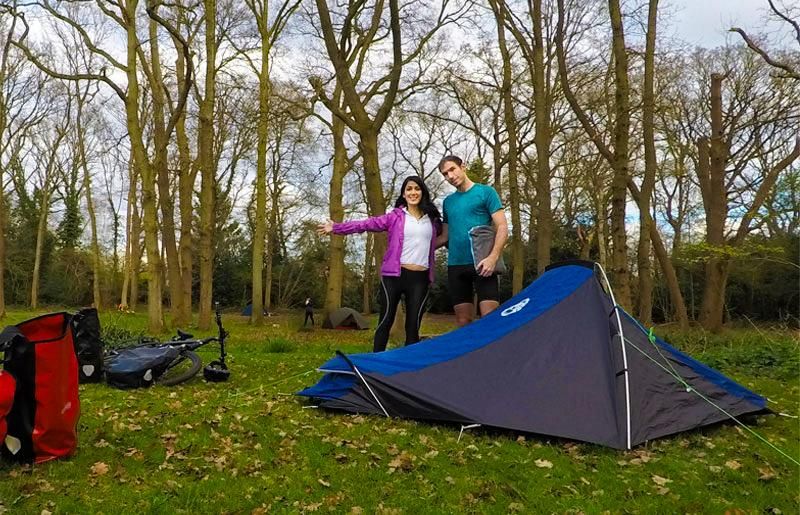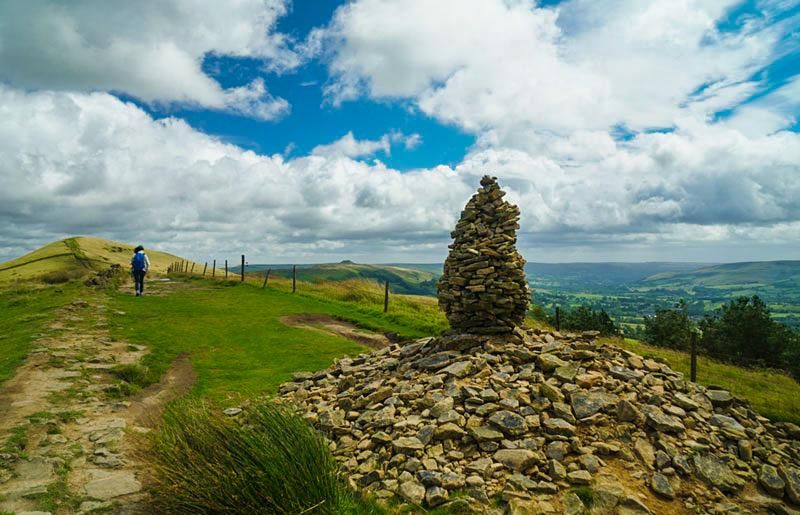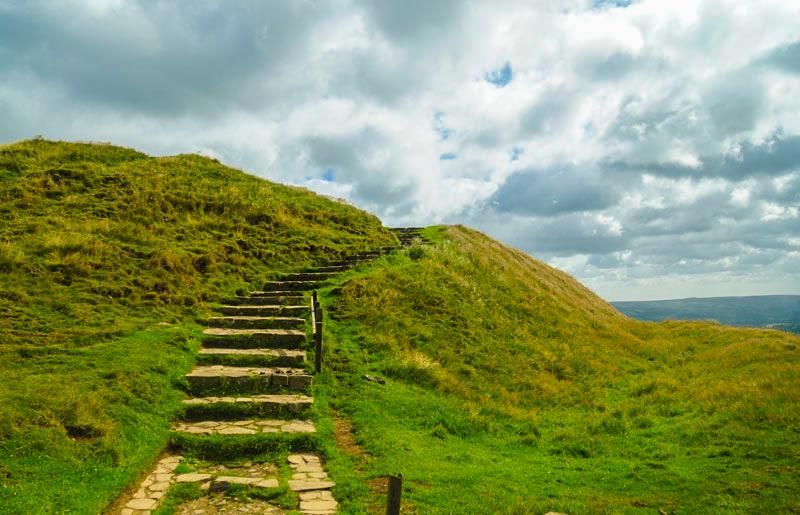Camping in the UK is one way to spend some fun time in nature and explore the beautiful British countrysides. But camping, like other activities, could be challenging if you are not well prepared for it. After having pitched our tent at different UK campsites, we came up with a list of useful tips that can help you ease your first camping experience in the UK. Let’s get started!

Buy your camping gears during the off peak seasons
If you are planning to spend a few days outdoors far from the usual buzz you’re going to need some decent gears. Depending on your requirements it can get pretty expensive if you need to buy a tent and sleeping bags a week before your trip. To get a good deal it’s advisable to buy them during off peak seasons, shops usually put up sales at the end of the summer, when demand for camping equipment decreases. The opposite is also true, at the beginning of the season prices usually get higher due to the increase in demand.
Choose your campsite wisely
Depending on your goals you should try to book the campsite that better suits your needs. If you are going to a campsite to hike make sure you book a campsite in a suitable location and not far from where you plan to hike.
If you are with your kids and family and you are planning on spending most of your time in the campsite choose one that allows doing some activities. Some of them only offer you a place to pitch your tent and sleep, so it can get quite boring. While others might offer children playgrounds or some other form of entertainment, like ping pong tables, play rooms, or even swimming pools.

If you plan on just relaxing in a peaceful environment make sure you book a campsite that isn’t packed with people, although this is usually quite tough in the UK, during the peak season campsites do get crowded.
If you are planning to stroll around with your car late at night make sure the campsite access will still be open by the time you get back by checking the opening hours or you might need to leave your car outside.
If you cannot tolerate cold showers, make sure you know whether hot showers are available, and ask whether they are free or not, sometimes you might need to pay extra to take a nice hot shower. Also, bring some dry shampoo and dry wash if you can, just in case.
Book in advance
As said previously, campsites in the UK during the peak season can get very crowded, and it can be quite hard to find availability if you don’t book well in advance. The best campsite don’t usually have late availability, so, if you’re planning on your dream camping experience, make sure you start looking for a campsite a few weeks in advance, or you might end up being disappointed and forced to book a campsite that doesn’t really suit your need.
If you are ok with taking the risk, you could just go directly to the campsite and hope they will let you in. If you have a small tent you might get lucky, some campsites do keep a couple of free spaces to pitch a tent for last-minute arrivals, such as backpackers or people on a bike tour. Just make sure you also have a plan B, or even more than one, in case there’s no space left for you and your tent.
Don’t trust the weather
If you’ve lived in the UK long enough you should already know this. The weather forecast in the UK should be taken with a grain of salt, as it is subject to very sudden changes. If you’ve booked your campsite because the weather forecast looks good, you might be disappointed if you get there and it rains all the time.
Manage your expectations, you might end up having to pitch your tent in the mud under heavy rain, sleep tolerating the sound of rain and wind all night, and maybe have to spend most of your time inside your tent or under a roof. But isn’t this part of the overall camping experience? Just make sure you have a plan regardless of the weather if it rains you can still chill out and read your favorite book.

Nighttime could be colder than you think
Another aspect of the weather that will need to be taken into consideration is the temperature. Even though you might go camping during the summer, this doesn’t mean nights are going to be warm.
Make sure you check your sleeping bags and know how they perform in low temperatures. We once camped, in late April, using a sleeping bag with a recommended temperature of above 11°C, but during the night it got as cold as 2°C. Trust me, it was not a fun night, make sure you are prepared, if you have the opportunity to carry extra equipment bring with you some extra blankets and clothing, you will be glad you’ve done so if it gets colder.
Don’t arrive late at a campsite
This is related to a couple of tips shared above. If you arrive late at a campsite staff working there might have already gone home. Don’t expect to turn at the campsite late at night and be able to pay for your stay and get access to it. If you haven’t booked in advance this becomes a serious issue. If you have booked in advance make sure you inform the campsite that you will be arriving late, and they will probably make some arrangements to help you find your spot when you arrive even if they won’t be there to help you.
The second thing to keep in mind, again, is that the car access might be closed if you arrive too late, so make sure you wrote down when the gates open and close every day.
Bring waterproof and windproof clothes
It doesn’t matter if you’re planning to have a walk around or just stay in the campsite, you should always bring with you a decent waterproof and windproof jacket and/or trousers. This will help if the weather gets crazy (and trust me, it does!). It can be quite painful to have to tolerate high wind gusts or a very wet day with no repair in sight without proper clothes.
Take good lighting with you
You might be used not to have to think about this, but when you are going to a campsite, you will definitely need, at the very minimum, a good torch. Campsites can get quite dark at night, which makes sense because no one would like to sleep under an illuminated tent pitch.
Make sure you also bring a head-lamp to attach to the ceiling of your tent, this will be helpful in case you want to read a book or play a game with your tent mates, or you’ll be forced to go to sleep as soon as it gets dark.
A torch will be necessary to be able to walk around the campsite at night or when you get out of your tent when it’s dark, in case you need to find the toilet in the middle of the night for example.
Bring some food
Some campsites might reside quite far from the nearest shops, and might also not have any food. It is important you know what you are going to be able to eat once you reach the campsite.
If you aren’t sure about the location or the facilities, bring some food with you, or if you have the right equipment, plan on cooking some food for yourself.
First aid
Since you’ll likely be in a remote location and have to sleep outdoors, make sure you bring a first aid kit with you. This can be useful whether you feel sick, you catch a cold, or you hurt yourself during one of your walks in nature.
Never underestimate what can go wrong with your adventure trips, be prepared.

I hope this helps you with your upcoming camping experience, if you have any of your own tips to share, please do so in the comment section below, as it could help other readers stopping by.
This piece has been written by Mansoureh Farahani, Founder of Travel With Mansoureh

